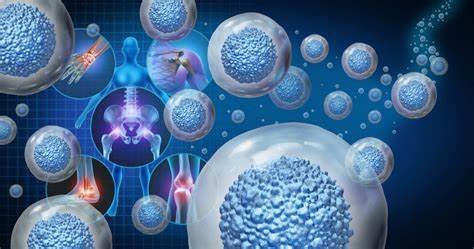National Cancer Center and University of Pennsylvania License CCR4 CAR-T Cell Therapy to ARC Therapies Inc.
12 July 2024 | Friday | News

Image Source : Public Domain
The National Cancer Center (Tokyo, Japan) and The University of Pennsylvania (Philadelphia, PA, USA) have licensed patent rights directed to a chimeric antigen receptor T cell therapy that targets the chemokine receptor CCR4 (CCR4 CAR-T cell therapy) to ARC Therapies Inc. (CEO: Rami Suzuki, Headquarters: Shinjuku-ku, Tokyo), a startup originating from the National Cancer Center. This agreement marks the commencement of ARC Therapies, Inc.'s research and development of a cell therapy targeting T-cell cancers, including adult T-cell leukemia/lymphoma (ATLL), which is prevalent in Japan. Furthermore, the potential application of CCR4 CAR-T cell therapy to solid cancers will also be pursued.
The National Cancer Center, established in 1962, is a leading cancer institute in Japan. The University of Pennsylvania pioneered the foundational research and co-development activities that led to the first CAR-T cell approved by the FDA in 2017 and continues to be a leader in CAR-T cell research, including next-generation therapies. ARC Therapies Inc., established in May 2022, is a National Cancer Center Japan-certified startup that promotes the research and clinical development of new cell therapies using cutting-edge research.
Hiroyuki Mano, Director of the National Cancer Center Research Institute, commented:
"At the National Cancer Center, we are consistently promoting a comprehensive approach from understanding the mechanisms of carcinogenesis to the development of treatment and diagnostic methods for various cancers. We are pleased that one of the outcomes of our international collaborative research, the CCR4 CAR-T cell therapy, has led to a licensing arrangement for the development of potential new treatments by a startup originating from the National Cancer Center. We expect this arrangement to accelerate the practical application of new T-cell therapies originating from the National Cancer Center."
Rami Suzuki, CEO of ARC Therapies Inc., commented:
"We are committed to the research and development of the CCR4 CAR-T cell therapy licensed from the National Cancer Center and the University of Pennsylvania. The potential long-lasting efficacy of chimeric antigen receptor T cell therapy is well-known, and we hope that our efforts will provide valuable treatment options for cancer patients."
Most Read
- Innovations In Magnetic Resonance Imaging Introduced By United Imaging
- Management of Relapsed/Refractory Multiple Myeloma
- 2025 Drug Approvals, Decoded: What Every Biopharma Leader Needs to Know
- BioPharma Manufacturing Resilience: Lessons From Capacity Expansion and Supply Chain Resets from 2025
- APAC Biopharma Review 2025: Innovation, Investment, and Influence on the Global Stage
- Top 25 Biotech Innovations Redefining Health And Planet In 2025
- How Health Systems Are Reshaping Drug Adoption, Partner Models, and Market Access in 2026
- The New AI Gold Rush: Western Pharma’s Billion-Dollar Bet on Chinese Biotech
- Single-Use Systems Are Rewiring Biopharma Manufacturing
- The State of Biotech and Life Science Jobs in Asia Pacific – 2025
- Asia-Pacific Leads the Charge: Latest Global BioSupplier Technologies of 2025
- Invisible Threats, Visible Risks: How the Nitrosamine Crisis Reshaped Asia’s Pharmaceutical Quality Landscape
Bio Jobs
- Sanofi Turns The Page As Belén Garijo Steps In And Paul Hudson Steps Out
- Global Survey Reveals Nearly 40% of Employees Facing Fertility Challenges Consider Leaving Their Jobs
- BioMed X and AbbVie Begin Global Search for Bold Neuroscience Talent To Decode the Biology of Anhedonia
- Thermo Fisher Expands Bengaluru R&D Centre to Advance Antibody Innovation and Strengthen India’s Life Sciences Ecosystem
- Accord Plasma (Intas Group) Acquires Prothya Biosolutions to Expand Global Plasma Capabilities
- ACG Announces $200 Million Investment to Establish First U.S. Capsule Manufacturing Facility in Atlanta
- AstraZeneca Invests $4.5 Billion to Build Advanced Manufacturing Facility in Virginia, Expanding U.S. Medicine Production
News











